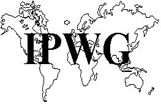|























|
 |
Impressions
"Those present will be responsible for continuing to work to promote mutual understanding"
Report by Maria J. Stephan (American Fulbrighter studying in Bonn, Germany)
The conference entitled ²Kosovo: Understanding the Past, Looking Ahead² provided the framework for a lively and enlightening discussion of many aspects of the most recent tragedy on European soil. The beauty of this gathering of students and professors from all parts of the world, many of whom came from the Balkans, was the way in which the panel discussions on topics ranging from the importance of the past in shaping the events of the present, to the role of international intervention in all stages of the conflict, to potential future dangers in the region, to hope for reconciliation and reconstruction in Kosovo sparked very in-depth, personal conversations between participants at the micro level. The interaction between students took place in a relaxed atmosphere, which is not to say that the dialogue was at all passive or low-key!
As an American who came to Budapest with the hope of hearing from students with different perspectives on the Kosovo conflict, students who had lived through the tragedy and could speak from personal experiences, I did not leave disappointed. Both during the formal parts of the conference (panels and workshops) and during informal occasions (meals and ²Kneipegespräche²) I gained considerable insight into the nuances of the conflict. Points raised during the presentations, especially those related to the limitations (and dangers) of dividing people along ethnic lines, to the relevance and applicability of ²just war² theory to the NATO-led military campaign against Serbia, to the hopeful prospects of reconstruction through a regional ²Stability Pact² and greater involvement of religious leaders and NGOs, challenged my own thinking and left me with many questions.
Although I was at times frustrated by arguments over historical nuances (was I the only one present who had never heard of the Duschan empire?) I was relieved when the discussion shifted towards specific ways to reconcile the warring parties and to work for a lasting peace. The very critical look at the role of the West and especially its failed preventative efforts in Kosovo was especially helpful. Why didn¹t the West pay attention to the pacifist movement in Kosovo which had already begun in 1989? Why was so little negotiation effort vis-a-vis the huge problems in Kosovo invested during the Dayton process? Why was autonomy for Kosovo rejected from the very beginning? Why were not anti-Milosevic opposition groups in Belgrade more energetically supported? Each of these questions provoked lively debate, especially in the context of the small-group workshops. I only regret that part of the conference was not dedicated to some form of role-playing activity, something which would have allowed all of us to ²get into the shoes² of the various parties at conflict with one another. This might be a suggestion for the next formal gathering of students from the Balkans and other countries.
There was no consensus reached during this Kosovo conference on any one point, except that those present would be responsible for continuing to work to promote mutual understanding, or the best recipe for a lasting peace in SE Europe. Florian, Frank, et.al. did a terrific job organizing and moderating the conference and deserve much credit for the level of enthusiasm achieved over the course of only three days. Kudos to the organizers! I personally had a number of memorable conversations and met some incredibly passionate people who hate the evils being commited in Kosovo. Without a doubt I left Budapest with a considerably more critical understanding of the situation in Kosovo, something for which I am very grateful. Best wishes to all of the conference¹s participants, from all over the world, in the name of peace!
|




